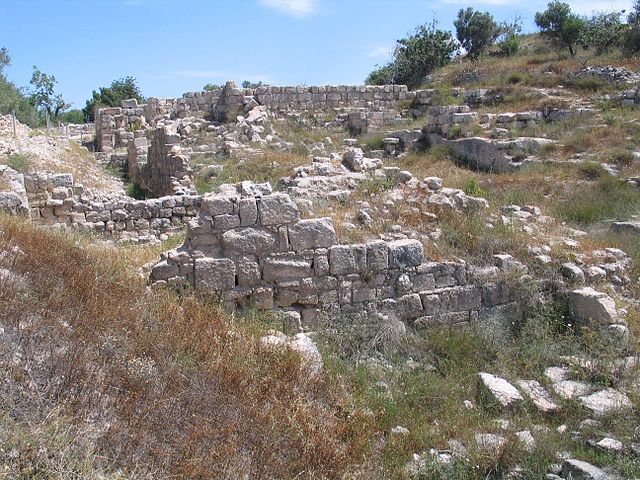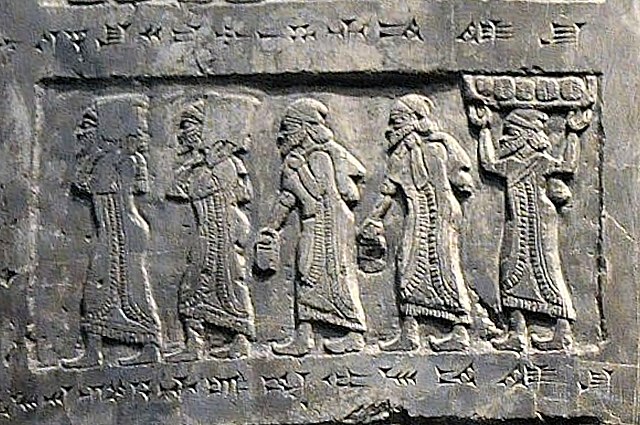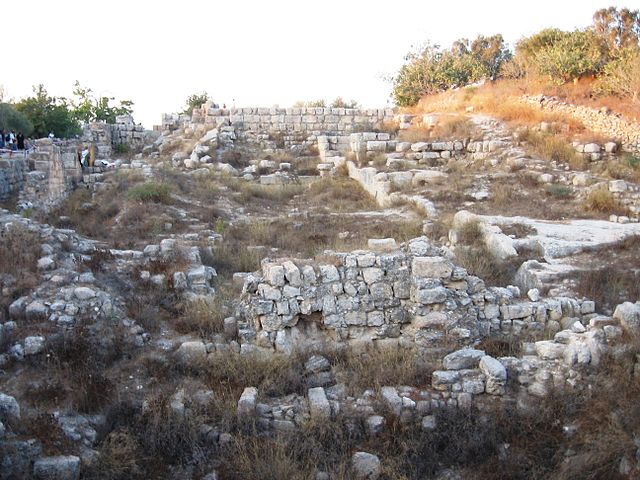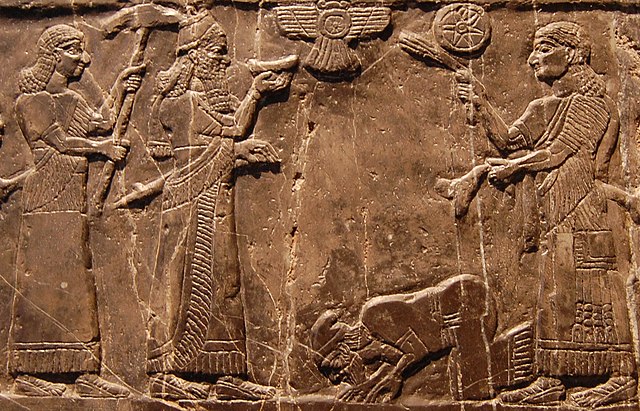The Omride dynasty, Omrides or House of Omri were the ruling dynasty of the Kingdom of Samaria founded by King Omri. The dynasty's rule ended with the conquest of Samaria by the Neo-Assyrian Empire under Shalmaneser V, who annexed the territory as the Assyrian province of Samerina.
Ruins of the Omride place in Samaria, modern-day Sebastia
Mesha Stele describes the oppression of Moab by Omri, king of Israel, and the Moabite victory over his unnamed son, probably referring to Ahab
Part of the gift-bearing Israelite delegation of King Jehu, Black Obelisk, 841–840 BCE.
Kingdom of Israel (Samaria)
The Kingdom of Israel, or the Kingdom of Samaria, was an Israelite kingdom in the Southern Levant during the Iron Age, whose beginnings can be dated back to the first half of the 10th century BCE. The kingdom controlled the areas of Samaria, Galilee and parts of Transjordan. The regions of Samaria and Galilee underwent a period with large number of settlements during the 10th century BCE, with the capital in Shechem, and then in Tirzah. The kingdom was ruled by the Omride dynasty in the 9th century BCE, whose political center was the city of Samaria.
Ruins of the Omride palace in Samaria, capital of the Kingdom of Israel
Jehu's delegation to Shalmaneser III, Black Obelisk, 841–840 BCE.
The tribute of Northern Kingdom King "Jehu of the people of the land of Omri" (Akkadian: 𒅀𒌑𒀀 𒈥 𒄷𒌝𒊑𒄿) as depicted on the Black Obelisk of Shalmaneser III, 841–840 BCE. This is "the only portrayal we have in ancient Near Eastern art of an Israelite or Judaean monarch".
Part of the gift-bearing Israelite delegation of King Jehu, Black Obelisk, 841–840 BCE.






